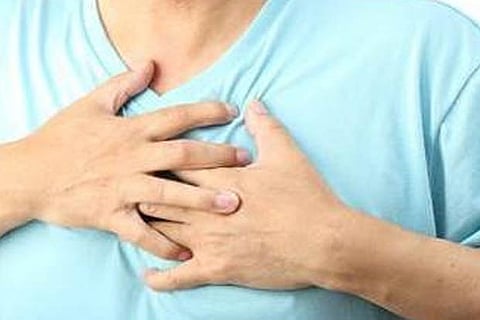

CHENNAI: Stroke is one of the major issues leading to critical health situations and sometimes life-threatening complications that warrant immediate medical intervention. It can lead to crucial disabilities in various parts of the body. When the blood vessels connected to the brain are ruptured or have a blockage it disables the blood & oxygen flow into the brain, resulting in stroke.
Immediate and prompt treatment can reduce the degree of brain damage and can enhance the recovery process. If the stroke-affected person does not receive adequate and proper treatment it can result in disabilities like impaired speech, limb paralysis, and sometimes even death. Stroke is being increasingly observed across all age groups from children to senior citizens. The common disorders or disabilities are cramped physical abilities, impaired speech, paralysis of limbs, and aphasia (impaired language function). Dr Shrivarthan R Consultant Neurology, at MGM Healthcare, says that stroke not only affects a person physically but also mentally. Prolonged depression, difficulty in sleeping, difficulty in swallowing, vision problems, losing/gaining weight, fatigue or tiredness, and incontinence are some of the main problems faced by patients with stroke.
In India, an average of 1.85 Lakhs people are affected by stroke and its consequent disabilities. India is also considered as the country which holds 68.6 percent incidence of stroke and 77.7% of disability, and the mortality data also shows that 192 people out of 1 Lakh people die due to stroke every year.
In addition to medications and control of underlying risk factors (like Diabetes, Hypertension, Dyslipidemia, and Heart diseases), adopting a nutritious diet that includes green vegetables, fruits, whole grains, high-fiber foods, seafood, eggs, tofu, nuts, seeds, and legumes can contribute to an expedited recovery from a stroke. The diet should not contain saturated fat, processed foods, or junk foods. Physical therapy and rehab is the cornerstone in stroke disability recovery.
“To reduce the risk of stroke, one should maintain a healthy diet, engage in daily physical activities, maintain proper blood pressure, follow precautions for diabetes, avoid smoking and consumption of alcohol, follow proper sleep patterns, consume adequate amounts of water, avoid high consumption of caffeine intake,” added Dr Shrivarthan R, Neurology Consultant of MGM Healthcare.